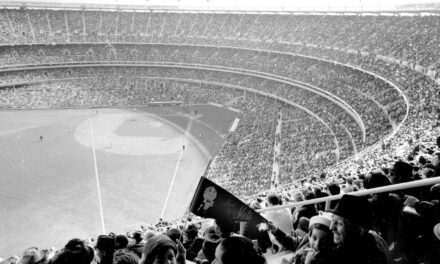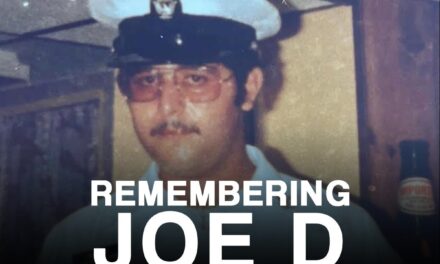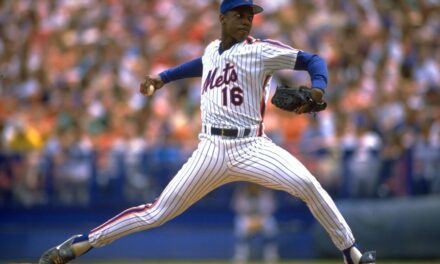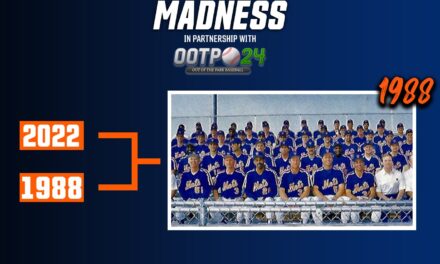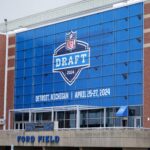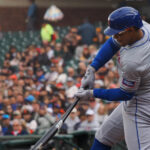
David Wright grew up rooting for the Mets and he matured in the Mets’ minor league system. He never gave the organization reason to doubt he was a cornerstone-in-waiting as he excelled on his way to the big leagues.
July 21, 2004, marked the beginning of the end of the Mets’ four-decade search to end a virtual revolving door at the hot corner. While Howard Johnson enjoyed tremendous seasons as a power-hitting third baseman, Wright became a fixture of the franchise.
HoJo naturally coached and mentored Wright during his development and beyond. According to a New York Times article, he phoned David the night before his major-league debut and said to “go up there and break all my records.”
With the focus of Shea Stadium on him for an otherwise ordinary Wednesday night game against the Montreal Expos, he jogged out to his position and gave a wave to the nearby fans with a smile.
Showing an absence of nerves, he nabbed a hotshot off the bat of José Vidro to end the top of the first. Wright made his initial at-bat in the second. Facing John Patterson, he popped up a 2-2 pitch that appeared to be landing in the visiting dugout. Instead, it wound up in the glove of catcher and future teammate Brian Schneider, who nearly fell over the railing.
He came up again in the third and Patterson got him to ground out to his opposite number. After another pop-out in the fifth, Wright showed opposite field power when he lifted a seventh-inning pitch from reliever T.J. Tucker. Right fielder Terrmel Sledge caught it on the warning track, giving Wright an 0-for-4 in what turned out to be a 5-4 Mets victory. As you might expect, Wright couldn’t have been happier with the results.
”Everything played out like it did in my dreams,” he said. ”Now I’ll go back to my hotel room and soak it in, replay each at-bat and each ground ball.”
Wright’s best contributions on this night came in the field, with his most impressive play coming when he pounced on a Sledge bunt attempt.
The necessary tools—in play and in presentation—to become the third base fixture and team leader were evident. Albeit a small sample size containing 69 games and 263 at-bats, Wright finished the year with a .293 batting average, 14 home runs, and 40 RBIs while carrying himself in a manner unusual for a 21-year-old. It was one of the few bright spots in an otherwise dismal 2004 season for the Mets.
Too often, highly regarded prospects succumb to the pressures of New York. Skills diminish before they truly flourish, and strong character weakens under the city’s searing heat. With their future captain, there was nothing to worry about.


